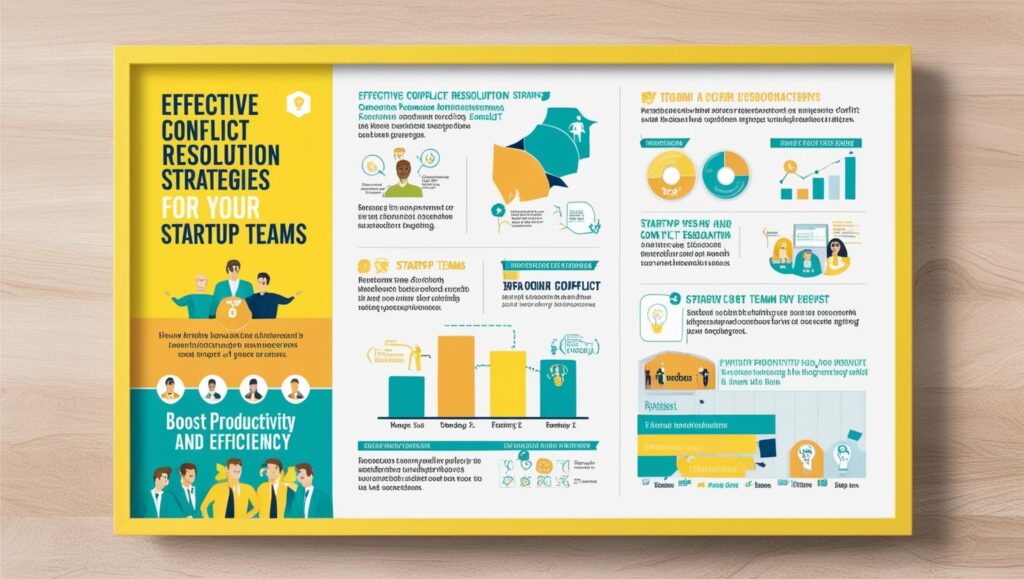Introduction
Conflict is an inevitable aspect of any team dynamic, and startup teams are no exception. As a management consultant with over 20 years of experience across various industries, I have witnessed first-hand the impact that unresolved conflicts can have on the success and morale of a startup. Effective conflict resolution is crucial for maintaining a healthy, productive, and innovative work environment.
Understanding the Sources of Conflict
Conflicts in startup teams often arise from diverse perspectives, differing work styles, and the high-stakes nature of the entrepreneurial environment. Market analysis and competitive pressures can also exacerbate tensions. For instance, disagreements over financial projections, resource allocation, and strategic direction can quickly escalate into full-blown conflicts.
As Warren Bennis once said, “Leadership is the capacity to translate vision into reality.” However, this vision can be clouded by internal conflicts if not managed properly.
Identifying Early Warning Signs
Early detection of potential conflicts is key to preventing them from becoming major issues. This involves being attuned to changes in team dynamics, such as increased tension during meetings, decreased communication, or noticeable shifts in behavior. Conducting regular team assessments and fostering an open-door policy can help in identifying these warning signs.
Communication as a Resolution Tool
Effective communication is the cornerstone of conflict resolution. It involves active listening, clear expression of concerns, and a willingness to compromise. When team members feel heard and understood, they are more likely to work towards a mutually beneficial solution. Market analysis and customer feedback can also provide valuable insights that help in aligning team goals and reducing conflicts.
Structured Conflict Resolution Processes
Implementing a structured conflict resolution process can help startups navigate disputes more efficiently. This could include:
– Mediation: Bringing in a neutral third party to facilitate discussions.
– Workshops: Organizing team-building workshops to enhance communication and trust.
– Clear Policies: Establishing clear policies and procedures for conflict resolution.
– Feedback Mechanisms: Creating channels for regular feedback to address issues before they escalate.
Fostering a Positive Team Culture
A positive team culture is essential for minimizing conflicts and ensuring that when they do arise, they are resolved quickly and constructively. This involves promoting a culture of respect, transparency, and open communication. As Richard Branson has noted, “Train people well enough so they can leave, treat them well enough so they don’t want to.” A culture that values and supports its team members can significantly reduce the likelihood of conflicts.
Conclusion
Conflict resolution within startup teams is a critical aspect of ensuring the long-term success and sustainability of the business. By understanding the sources of conflict, identifying early warning signs, leveraging effective communication, implementing structured resolution processes, and fostering a positive team culture, startups can navigate conflicts more effectively.
If you are facing challenges in conflict resolution or need guidance on how to create a harmonious and productive team environment, consider reaching out to Samunnati Ventures. With our extensive experience in business consulting, financial planning, and corporate strategy across diverse industries, we can help you navigate the complexities of team dynamics and ensure your startup achieves its full potential.

